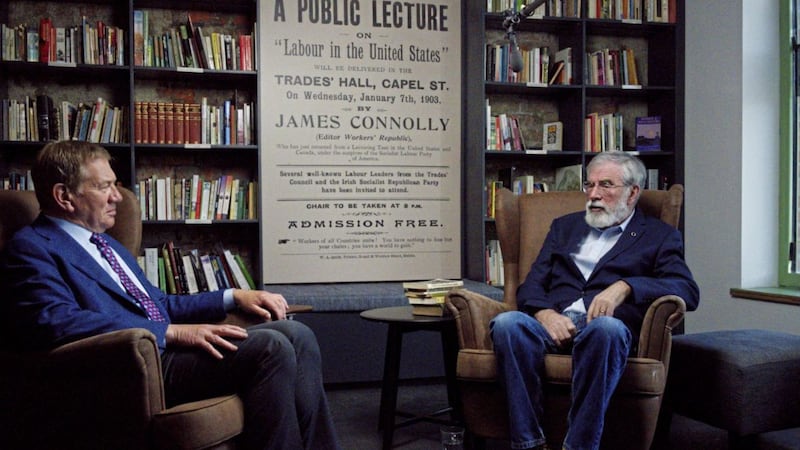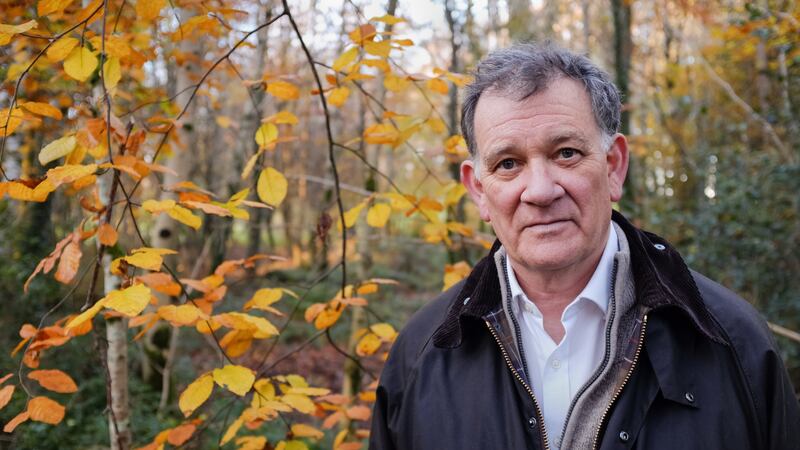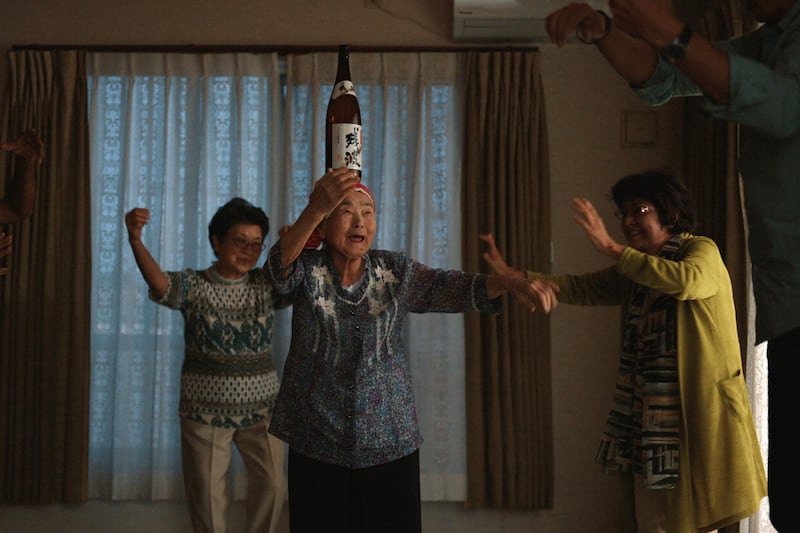Partition 1921, RTE 1, Monday
Peter Taylor: Ireland After Partition, BBC 2, Monday
OVER two hours of television, a veteran British journalist and a former Tory MP considered the reasons for and the effects of partition 100 years on, while also offering us a warning for the future.
Michael Portillo, a member of two Conservative governments, has developed a significant broadcasting career since leaving politics and he’s excellent at this kind of sensitive subject.
He’s previously presented RTE programmes, including 1916 Rising: The Enemy Files, and Hawks and Doves, on the War of Independence.
Partition 1921 was a traditional history programme, with Portillo asking questions from historians on the part of the viewer and encountering more current figures (Bertie Ahern, Jonathan Powell and Gerry Adams) on his own terms.
But it was the programme’s clear view that the culprits for partition were the Tories, with the blame falling squarely on the leader of the opposition, Bonar Law.
It was argued that the Ulster Volunteer Force, mustered by unionists to violently oppose Home Rule, would not have existed in its belligerent form without the support of the Conservatives subverting the lawful decisions of the British government.
Portillo was scathing of Bonar Law’s behaviour, saying his infamous phrase - “I can imagine no length of resistance to which Ulster will go, in which I shall not be ready to support them” - was “shocking” as the leader of the opposition.
“He is contributing to armed rebellion,” Portillo said.
Peter Taylor, a journalist for 50 years who specialised in Northern Ireland, briefly covers partition and remarks on how he was struck that for loyalists the blood sacrifice of the Somme (many of whom were members of Carson’s UVF) is more important than the Battle of the Boyne.
However, he quickly jumps forward 50 years to his reporting of the Troubles and Ireland After Partition is essentially a collection of some of Taylor’s finest work, with the background to the interviews explained by the journalist himself.
In the early days of the Troubles, paramilitaries on both sides did press conferences, but Taylor had a knack of getting people to talk to him in the starkest way.
His interview with loyalist paramilitary Jim Light about the 1973 murder of a Catholic teenager is chilling.
Taylor: “What did you do?”
Light: “I went out with a group of other volunteers from the UFF. We picked up a Catholic and we took him away and we executed him.”
Taylor: “Why was he selected?”
Light: “He was selected for no other reason than he was a Catholic.”
Taylor: “Who pulled the trigger?”
Light: “I pulled the trigger, I pulled it, yes.”
Taylor: “Was there any hesitation?”
Light: (pause) “No, actually, no, I wouldn’t say I’d any hesitation at that time.”
While covering events from the foundation of Northern Ireland and the Troubles of the 1970s, both Taylor and Portillo conclude their programmes with warnings about the future.
Taylor believes a United Ireland is likely in the medium term, but he is concerned about the dark forces it may awaken.
“Unless there’s agreement on what form a united Ireland would eventually take, agreement between the British government, the Dublin government and the people of Northern Ireland, crucially, there can never be peace, the conflict will continue. And that’s the challenge.”
Considering how the constitutional position of Northern Ireland might be ended in a possible a 32-county Ireland, Portillo also advises that we learn the lessons of the past.
He suggests that any mechanism to end Northern Ireland is “approached with more wisdom and sensitivity that were evidenced at its creation”.
We should heed their advice.









